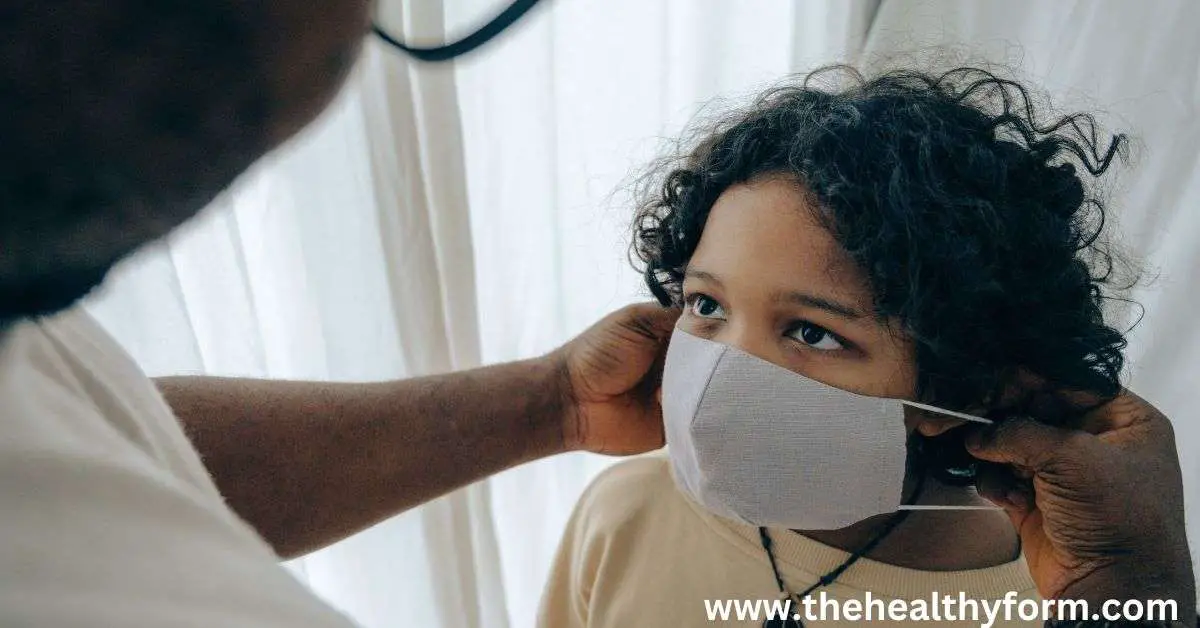Immunizations: Importance in protecting children
“Immunizations: Protecting Children from Serious and Life-Threatening Illnesses. It’s natural to worry about your child’s health and well-being. Unfortunately, children can be at risk for serious, life-threatening illnesses requiring special care and attention. This article discusses ways to protect your children from serious and life-threatening illnesses, including vaccination, healthy lifestyle choices, and understanding the signs and symptoms of common conditions. We also offer tips for supporting your child through treatment and finding resources and support for your family.
“Immunizations, also known as vaccines, are an important part of children’s healthcare. Vaccines help to protect children from severe and sometimes life-threatening illnesses, such as measles, polio, and pertussis. In this blog post, we’ll explore the importance of immunizations for children and provide tips and resources to ensure your child is fully protected.

What are the recommended vaccination schedules for children?
The recommended vaccination schedule for children is designed to protect them when they are most at risk. Following the recommended schedule is important to ensure your child is fully protected. The schedule is regularly reviewed and updated based on medical experts’ latest research and recommendations. The current recommended vaccination schedule for children is on the Centers for Disease Control and Prevention (CDC) website.
Infants should receive vaccinations against hepatitis B, rotavirus, diphtheria, tetanus, pertussis, Haemophilus influenzae type b (Hib), pneumococcal illness, and polio between birth and 15 months.
Children between should have booster shots for diphtheria, tetanus, pertussis, polio, measles, mumps, rubella, and varicella between the ages of 4 and 6. (chickenpox).
Preteens should have tetanus, diphtheria, pertussis, meningococcal disease, and human papillomavirus vaccines between the ages of 11 and 12. (HPV).
16 to 18 years old: Teenagers should get a booster dose for serogroup B meningococcal illness and the first dose in a two-dose series.
Maintaining track of your child’s vaccination history is crucial, as well as ensuring they receive all the required doses since certain vaccinations must be administered in numerous doses over time to be effective. If they miss a recommended vaccination, your kid may need to catch up with a modified schedule, which may be discussed with their healthcare professional. Your kid can be protected from deadly infections by adhering to the advised immunization schedule, which also helps to stop outbreaks in the neighborhood.
How do vaccines work?
A tiny quantity of a pathogen, such as a virus or a bacterium, that causes disease but has been weakened or rendered inactive is included in vaccines.
A person’s immune system gets exposed to the pathogen in the vaccine when they receive a vaccination.
The immune system identifies the pathogen as alien, initiating an immunological response.
Antibodies, specialized proteins that detect and neutralize the pathogen, are produced as part of this response.
Moreover, the immune system creates memory cells, which “remember” how to create antibodies if the individual is exposed to the pathogen again.
Although weakened or inactivated, the pathogen in the vaccine nevertheless induces an immune response comparable to what would occur if the patient contracted the infection directly.
Yet, the likelihood of becoming sick from the vaccination is low since the pathogen in it is weaker than the real disease.
The immune system can swiftly manufacture the required antibodies to combat an illness if a person is subsequently exposed to the real pathogen because of the memory cells produced by the vaccination.
This indicates that the person has a far lower risk of contracting the illness or, if they do, of developing severe symptoms.
The prevalence of many major illnesses has decreased due to vaccinations, an effective strategy for halting the spread of infectious diseases.

What are the benefits of vaccines?
There are many benefits to vaccines, including the following:
Vaccines trigger the body’s immune system to detect and combat particular disease-causing microorganisms, preventing serious and fatal infections. This can shield people from contracting diseases, including measles, mumps, rubella, hepatitis B, and other potentially fatal diseases.
Vaccinations are not always possible for some people because of their age, health, or allergies. We may build herd immunity by immunizing eligible individuals, implying that a population has enough immunized members to prevent a disease from spreading. This helps safeguard those who can’t get immunizations, such as babies or those with compromised immune systems.
Vaccines are a cost-effective strategy to prevent illness and disease, which lowers healthcare expenses. Vaccines lessen the need for medical care and hospitalization by avoiding illnesses, which may save people, families, and healthcare systems a lot of money.
Vaccines have historically saved a great number of lives. For instance, a global vaccination drive helped eliminate smallpox in 1980. Due to vaccine campaigns, polio is almost eliminated; only a few nations are still recording instances.
Enhancing general health and wellbeing: Vaccines can help people stay healthy and avoid the long-term health effects of some illnesses by avoiding sickness and disease. This may result in a higher quality of life and greater well-being for people and communities.
In general, vaccinations are crucial for warding off illness, safeguarding at-risk groups, and saving lives.
How can I find out which vaccines my child needs?
You can determine which vaccines your child needs by talking to your healthcare provider or checking the recommended vaccination schedule on the CDC website. Your healthcare provider can also help you determine the best vaccination schedule for your child based on age, health history, and other factors.

What are the common side effects of vaccines?
Vaccines are generally safe and effective, but like any medication, they can cause side effects in some people. Common side effects of vaccines include pain or swelling at the injection site, fever, and body aches. These side effects are usually mild and resolve independently within a few days. Rarely more serious side effects can occur, but they are typically very rare. Your healthcare provider can discuss the risks and benefits of vaccines with you.
How can I manage vaccine anxiety?
Having questions or concerns about vaccines is normal, and talking to your healthcare provider about any concerns is important. They can provide accurate and reliable vaccine information and help address your concerns. It’s also important to seek out trusted sources of information about vaccines, such as the CDC or the World Health Organization (WHO).
What are the risks of not getting vaccinated?
Not getting vaccinated puts a person at risk of serious and sometimes life-threatening illnesses. It can also put others at risk, especially those unable to receive vaccines, such as young infants or people with certain medical conditions. Outbreaks of vaccine-preventable diseases can occur when vaccination rates in a community drop, and these outbreaks can lead to serious complications and even death. By getting vaccinated, you not only protect yourself and your family, but you also help to protect the larger community.
How can I find a trusted source of information about vaccines?
There is a lot of misinformation about vaccines available online, so it’s important to seek out trusted sources of information. Some reliable sources of information about vaccines include:
- Centers for Disease Control and Prevention (CDC): The CDC is a national public health agency providing reliable, evidence-based vaccine information.
- World Health Organization (WHO): The WHO is a global health organization that provides information about vaccines and other health issues.
- American Academy of Pediatrics (AAP): The AAP is a professional organization for pediatricians that guides vaccines and other children’s health issues.
What are the current recommendations for COVID-19 vaccines for children?
The COVID-19 vaccine is currently only authorized for adults 16 years and older. Clinical trials are ongoing for the COVID-19 vaccine in children, and it is expected that the vaccine will be authorized for use in children at some point in the future. It’s important to follow the latest recommendations from health authorities, such as the CDC, for information about the COVID-19 vaccine and when it is available for children.

How can I find a vaccine provider near me?
You can find a vaccine provider near you online or by contacting your healthcare provider. You can also contact your state or local health department for information about where to get vaccinated.
FAQ about Immunizations: Importance in protecting children
Here are some of the most common questions people have about immunizations are:
What are immunizations, and how do they work?
Immunizations, also known as vaccines, are medical treatments that help the body build immunity to specific diseases. They work by introducing a small, harmless amount of a virus or bacteria into the body, which triggers the immune system to produce antibodies to fight it. These antibodies remain in the body and protect against future exposure to the disease.
Why are immunizations important for children?
Immunizations are important for children because they protect them from serious and sometimes deadly diseases. Children are especially vulnerable to infections because their immune systems are still developing. Vaccines help prevent the spread of diseases in schools and communities and reduce the risk of outbreaks.
Are vaccines safe for children?
Yes, vaccines are safe for children. Extensive testing and research have shown that vaccines are effective and safe for children. The Centers for Disease Control and Prevention (CDC) and other health organizations closely monitor vaccine safety and continually evaluate vaccine ingredients and their potential side effects.
What are the side effects of immunizations?
Like any medical treatment, immunizations can have side effects. Most side effects are mild and include things like a low-grade fever, soreness at the injection site, or a mild rash. Serious side effects are rare, but they can occur. Your healthcare provider can give you more information about the potential side effects of specific vaccines.
Conclusion
Immunizations are an important part of children’s healthcare and are essential for protecting children from serious and life-threatening illnesses. It’s important to follow the recommended vaccination schedule for children and work with your healthcare provider to ensure your child is fully protected. By getting vaccinated, you not only protect yourself and your family, but you also help to reduce the spread of disease in the community.


